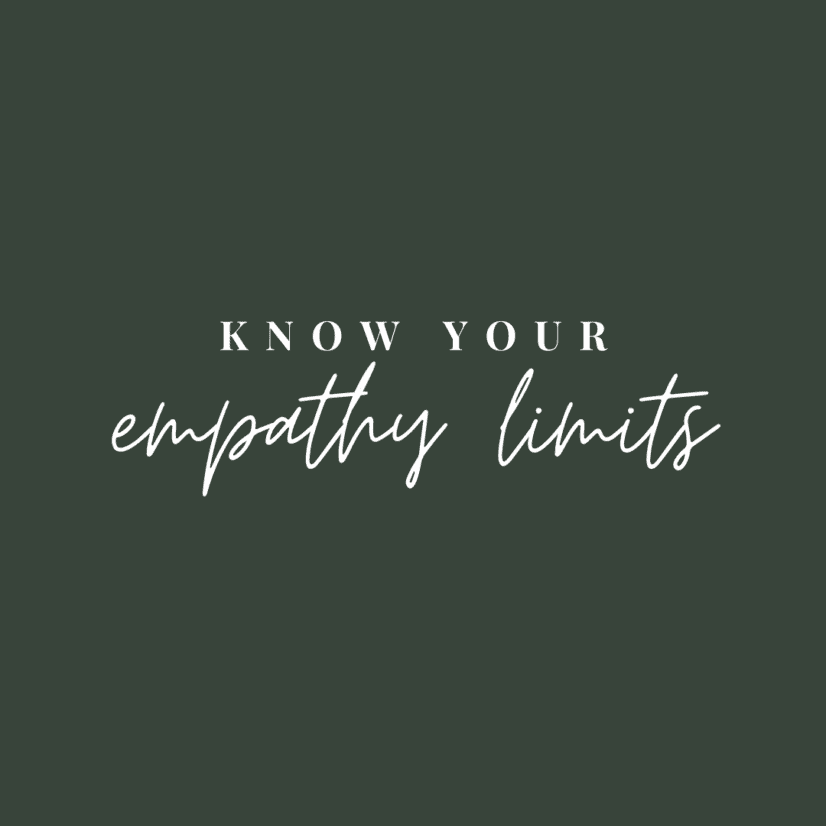Empathy is an essential component in communicating with others in a healthier and kinder way.
It’s the ability to feel what another person is feeling from their perspective or “putting yourself in someone else’s shoes” as some would say it. When empathy is over–used or is one’s default way of relating, it can negatively impact one’s psychological well-being. A healthy form of empathy involves striking an emotional and intellectual balance between self and another person. One has the ability to pay attention to another’s needs without sacrificing one’s own. This delicate balance is disrupted for many reasons. They can include family of origin dynamics, traumatic experiences and mental health issues.
An individual may run the risk of getting “stuck” in the feelings of others and neglecting one’s own needs.
Do You…
- Spend more time thinking about the other person’s feelings than your own?
- Focus on the other person’s argument to the point where you exclude your own?
- Feel the other person’s feelings like they are your own?
- Spend more time trying to figure out why another let you down rather than deciding if his/her reasons outweighed your feelings?
Symptoms of this can include:
- Diminished ability to make decisions in one’s best interest
- Physical exhaustion – fatigue, sleep disturbance, muscle aches, headaches
- Psychological exhaustion – lack of motivation, difficulty with concentration, dwelling on another’s situation from their perspective, low-level depression, generalized anxiety
- Feeling overwhelmed with your life – increased perceived stress about your responsibilities, “dropping the ball” with primary people in your life, alienating or isolating
In successful adult relationships, empathy is a reciprocal process. Each partner moves back and forth between giving and receiving empathy, equally distributing power. If you are experiencing a combination of symptoms above you may benefit from seeking help from a mental health professional. The therapeutic process could assist you in learning how to use empathy appropriately, setting healthy boundaries and communicating more assertively in your life.
Written by: GROW Staff

